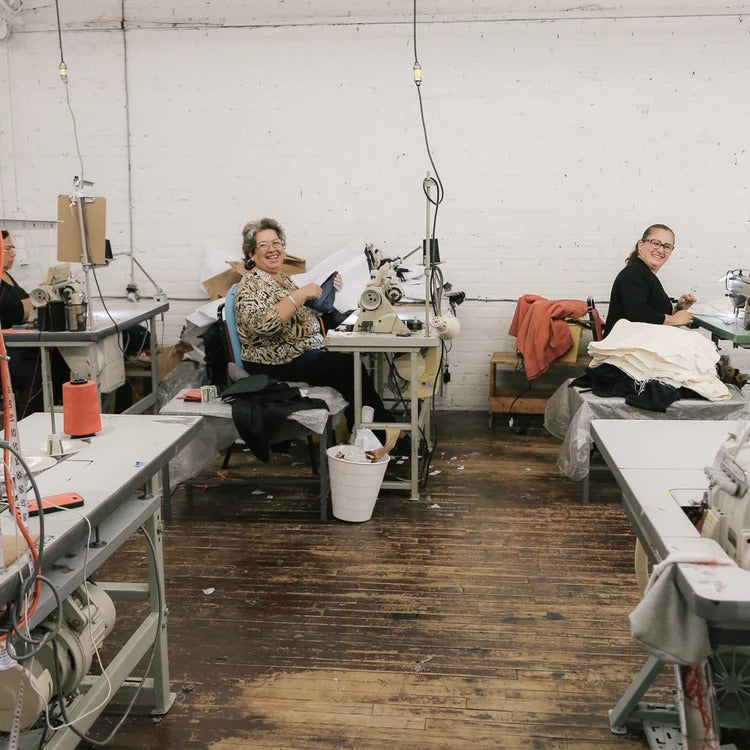“Ethical practices and sustainable products made with eco-friendly materials organically sourced with carbon-free technologies to restore the planet using green innovations.” Brands will use phrases like this to advertise a new green product or clothing that they are incorporating into their brand but what does this line actually mean? This “green” loaded sentence is an example of how often the words “sustainable”, “ethical”, and “green” are used interchangeably without fully understanding how they differ from each other. To be ethical doesn’t always include sustainability but being sustainable always incorporates ethical working conditions and fair wages. In recent years, mostly due to the elevation in concern for the climate crisis, sustainability has become more popular and brands have started to create their own environmental clothing pieces- instead of fully committing to being a sustainable company. These environmental buzzwords, when used in a long string of similar meaning words, can end up all sounding the same but to avoid being “greenwashed”, it’s important for you to understand what these words mean, how they differentiate, and how to tell when a company is being authentically sustainable.
When a product is advertised as ethically made, the term, ethical, is referring to the company’s standards of enforcing a fair and livable wage while providing comfortable working conditions. Brands that use ethical practices usually will showcase their factories and warehouses on their websites under their “about” section of their website to authentically display the working conditions they offer. If a brand is committed to fair wages and safe working conditions, then they will always be transparent on their website, emails, or calls. It goes the other way as well, if a company doesn’t disclose their ethical practices or show pictures of the inside of their factories, then it’s fair to assume that this company is not practicing ethical operations and is contributing to the problem. An example of a brand that displays all of their different factories is the clothing company, Closed Jeans. Closed not only discloses all of their locations of warehouses across Europe, when they opened, and how many employees they have, they introduce some of their employees and explain what they do day-to-day.

This screenshot is taken from the Closed website and only shows some of their happy employees working in the Italy location. It's fair to note as well that Closed not only is transparent about their practices but also discloses a yearly PDF of their sustainability report. Thereby, Closed Jeans is Jones approved as sustainable.
Sustainability can only exist in ethical environments which include equitable wages, safe working conditions, and environmentally-conscious choices made by the brand and its employees. If a brand claims to be sustainable but is missing one of the key elements to sustainability, such as unethical practices or an increasing carbon footprint, then that brand is greenwashing you. If you are unfamiliar with the practice of greenwashing, it’s defined as brands spreading disinformation about their commitment to sustainable operations by exploiting the rising trend of environmentalism to benefit their profits by advertising to a specific crowd. As I mentioned earlier, brands that are transparent with their operations and carbon footprint are truly sustainable. Whimsy and Row is one of my favorite slow fashion examples due to their long lived commitment to sustainability. Whimsy and Row discuss every aspect of their plan to combat climate change, how they are currently executing it, and areas they see that need improvement. Hence why Whimsy and Row is Jones satisfied a hundred times over.

Photo taken by the Whimsy and Row website 11/1/2022
Ethical, environmental, and sustainability are often used in the same contexts within each other, like this blog post, however I hope that now you are able to recognize the differences in meaning that each of these words hold. Ethical practices incorporate equitable wages and comfortable living conditions for their employees. Brands that are ethical aren't always sustainable so when purchasing a piece that you made ethically but not environmentally, the choice of whether or not that matters is a personal one and rid of judgment. When a clothing brand identifies themselves as sustainable, they are committed to practicing ethical operations while being conscious of their environmental impact. A few brands that are Jones approved as sustainable are Closed Jeans and Whimsy and Row. From these explanations and long definitions, I hope that you can identify the differences between these words in the future to inform you on the intentions of brands!


